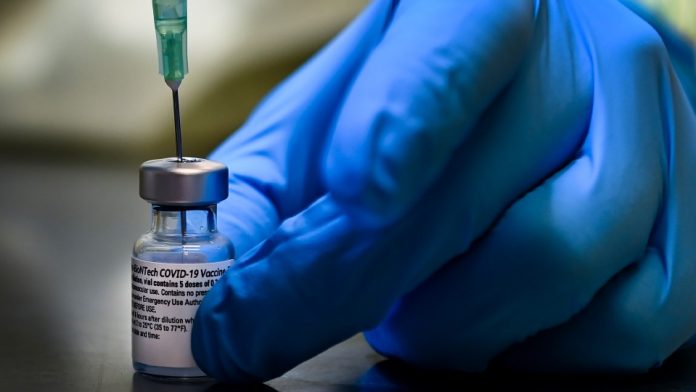Doctors must be judicious about handing out medical exemptions to COVID-19 vaccines, the head of Ontario’s medical regulator said, urging physicians to do their part to slow the pandemic’s fourth wave.
The message from the CEO of the College of Physicians and Surgeons of Ontario comes after the province announced a vaccine certificate program that will require residents to be inoculated against COVID-19 to access some non-essential services, unless there’s a medical reason they can’t be vaccinated.
“Given the level of fatigue we are all feeling — health care workers in particular — we all need to do whatever we can to mitigate any further spread of COVID-19,” said Dr. Nancy Whitmore, who is also the college’s registrar.
“We, as the regulator, want to do our part by ensuring the guidance around complex COVID-19 issues are strong and clear.”
Whitmore said the college has already heard about requests for baseless medical exemptions, and physicians must not give in.
There are very few legitimate medical reasons not to get vaccinated against COVID-19, she said.
They include an allergist- or immunologist-confirmed severe allergy or anaphylactic reaction to a previous dose of a COVID-19 vaccine or to any of its components, and a diagnosis of myocarditis — inflammation of the heart muscle — and pericarditis, inflammation of the sac around the heart, after receiving an mRNA vaccine.
“Given the rarity of these exceptions, and in light of the fact that vaccines have been proven to be both safe and effective, any notes written for patients who qualify for a medical exemption need to clearly specify the reason they cannot be vaccinated against COVID-19 (i.e., document clear medical information that supports the exemption),” Whitmore wrote.
On a frequently asked questions page, the college tells doctors they have the right to refuse giving a medical exemption to the vaccine if there’s no basis for one.
“If you find yourself in this situation, clearly and sensitively explain to your patient that you cannot provide them with a note or form, along with the reasons why,” it says.
Ontario’s vaccine certificate system, announced Wednesday, is intended to increase immunization rates in a bid to curb the fourth wave of the COVID-19.
Starting Sept. 22, residents will need to show proof of immunization to access public spaces such as gyms, movie theatres and indoor dining at restaurants.
The province’s COVID-19 Science Advisory Table released updated modelling on Wednesday evening suggesting that the province will be in trouble if more people don’t get their shots.
If virus transmission isn’t reduced, the fourth wave of the pandemic could see more admissions to intensive care units than the third wave, as early as October, the table said.
“Because of the Delta variant and to avoid a lockdown in the fall, vaccination needs to accelerate substantially above 85 per cent of eligible population aged 12+ fully vaccinated and we need to reduce contacts to about 70 per cent of pre-pandemic levels until vaccination is high enough to protect the population,” the advisers wrote.
Roughly 83 per cent of Ontarians aged 12 and older have at least one dose of a COVID-19 vaccine, and 76.6 per cent are fully vaccinated.
The number of daily diagnoses of the virus has been rising steadily in recent weeks, with 865 new cases reported in Ontario on Thursday. The province also counted 14 new deaths linked to the virus.
Health Minister Christine Elliott said 692 of the new diagnoses are in people who are not fully vaccinated or whose vaccination status is unknown.
Government data shows 320 Ontarians are hospitalized due to COVID-19, with 162 in the ICU and 105 on a ventilator. Elliott said 292 of those hospitalized are not fully vaccinated or have an unknown vaccination status.































